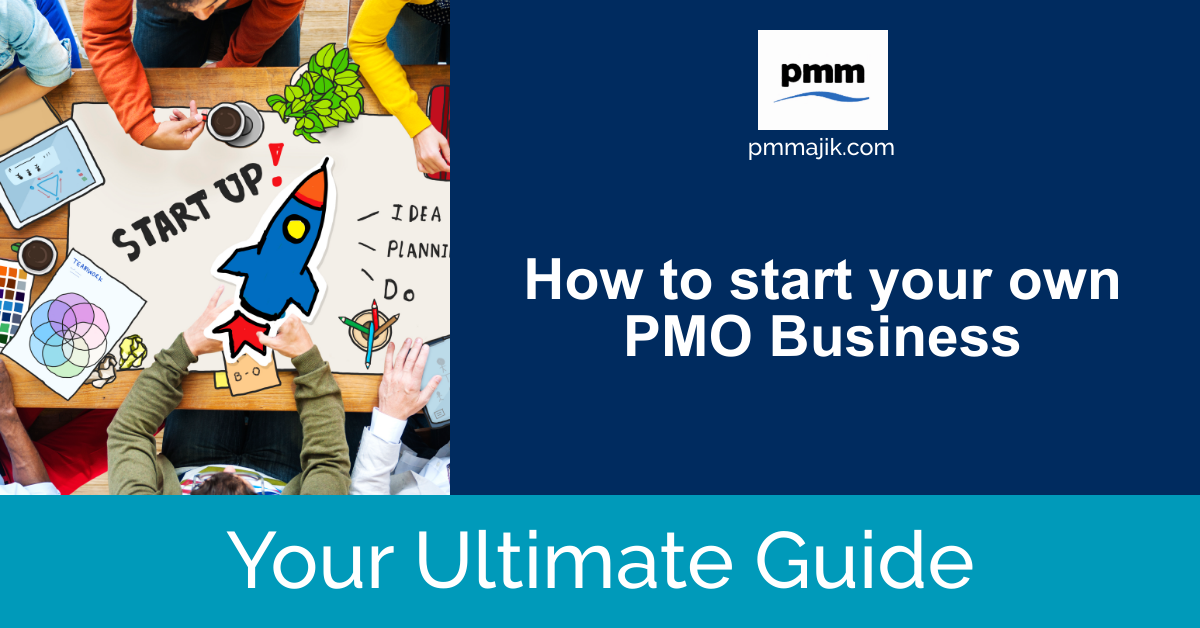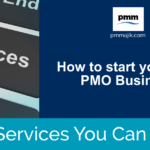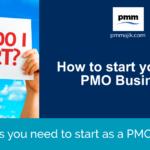Creating a project management office for a business or organisation can be a huge undertaking; starting as a freelancer or creating a business that offers PMO services is a whole new ball game. Knowing how to do this takes significant time and research.
We’ve looked at the business case for contracting out PMO services, but how do you get on the other side of that equation? Being a PMO professional can be the perfect starting point to offer outsourced business services to businesses that don’t have full PMOs yet.
To help you understand how to become a PMO contractor, we’re going to look at:
- What a PMO contractor is and how it’s different to a freelancer
- What you’ll need to prepare to become a PMO contractor
- The skills and qualifications you’ll need to start this role
- How you can start to find clients for your PMO contract business
So you can decide if you’re ready to take the plunge and start your own PMO business.
What is a PMO contractor?
A PMO contractor is a person or business that does all or some of the work of a project management office on an outsourced, contract basis.
When your business takes on PMO contracts, you can cover the full spectrum of PMO work, from admin tasks like logging expenses and timesheets to creating programme plans and strategies. The work can be:
- Task-based – your business can be contracted to complete one-off project and programme tasks such as creating a plan, scoring project priorities, or providing the frameworks and documents to get a PMO started.
- Programme-based – you can be brought into a PMO to offer regular services through the lifetime of the office, such as collecting and reporting data, monitoring project compliance, or supporting project managers through project lifecycles.
- Temporary services – when a PMO worker, from admin to analyst, specialist, or director, takes long-term leave or parental leave, or a business needs a stopgap during a recruiting phase, your outsourced PMO can be brought in to cover tasks.
What’s the difference between a PMO freelancer and a contracted PMO?
A PMO freelancer is one person who takes on PMO work on an individual basis, whereas a contracted PMO is likely to offer a broader range of services covering more elements of a PMO.
Businesses can and do choose to take on PMO freelancers reasonably regularly. However, when looking to contract out PMO tasks, they’re more likely to want more than one skill set in one place.
There is a place for outsourced PMOs and freelancers. Businesses can and will need them at different points in their journey of development.
What do I need to set up a contracted PMO business?
To set up a contracted PMO business, first you’ll need PMO experience. This will help you understand the pain points that PMOs in your industry and niche need solving.
In the IT sector, there may be issues with scheduling the right talent, while in the construction industry, it could be logistics of delivery. Your experience will know what the issues are, what PMOs struggle with, and so what services you should be offering to take off their plate.
You’ll likely need to create a business and otherwise get your tax affairs in order. Having the tools for the job will be essential. If you want to offer admin or reporting, you’ll need the tools to log data or produce visualisations. This can be industry-specific so lean into your experience.
If you’re not going to hire staff immediately, have a pool of other skilled freelancers you can call on for tasks.
What skills and qualifications do I need to set up a contacted PMO?
The skills you need will depend on your location and industry. In the UK and EU, the PRINCE2 certification is often sought and highly valued, while the Project Management Professional (PMP) and Portfolio Management Professional (PfMP) are more in demand in the USA.
Know your industry and what is needed. You need to offer skills and knowledge that are scarce so that your business has value.
How do I find clients for a contracted PMO?
When you start to offer contracted PMO services, the first thing you should do is lean into your network. When you have identified the pain point your business can solve, you’ll likely have had some businesses in mind, so use contacts to pitch to them.
Other tactics you can use include:
- Social media networking, particularly LinkedIn
- Cold pitching to businesses you know run projects and need support
- Creating a website that’s optimised for search
- Creating profiles and agencies on popular sites like Upwork and Freelancer
How to start a contracted PMO business
Starting a business is a huge challenge. In this guide, we’ve covered the basics of how to start a contracted PMO business which we’ll be expanding on in future posts.






